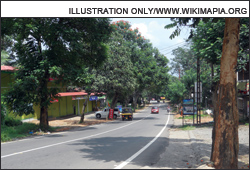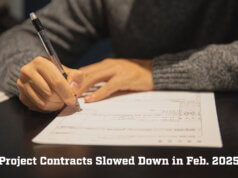 The Indian highway sector badly needs an impetus to move forward. M. Murali, Director General, National Highways Builders Federation, the apex organisation of all contractors and builders of national and state highways and bridges, suggests a number of measures to boost growth of the highway sector. These measures concern exit norms, escalation payments and payment of premium, if initiated.
The Indian highway sector badly needs an impetus to move forward. M. Murali, Director General, National Highways Builders Federation, the apex organisation of all contractors and builders of national and state highways and bridges, suggests a number of measures to boost growth of the highway sector. These measures concern exit norms, escalation payments and payment of premium, if initiated.
Roads are a major mode of transportation in India since they carry almost 90 per cent of the passenger traffic and about 65 per cent of freight.
The density of the country’s 80,000-km national highway network is 0.66 km of highway per sq. km of land and it is encompassed by over 200 toll plazas, half of which are handled by highway developers and the rest by National Highways Authority of India.
Infrastructure, as is well known, is critical for a country’s economic development and increasing its global competitiveness. India’s economy today is largely riding on the back of infrastructure development. As far as the country’s macroeconomic outlook goes, it is promising despite the economic slowdown and cautious business sentiments. The long-term outlook, on the other hand, is considered ‘rock solid’.
In 2012-13, the GDP growth fell to its lowest in recent years with investments barely trickling in. Some of the major concerns of the investors included slowdown of reforms, high interest rates, poor or lack of governance, delays faced in receiving statutory clearances, uncertain political environment and corruption. There is, no doubt, that the global recession also significantly impacted the investment inflow.
The highway sector, considering that it is not insulated from the effects of lack of investor confidence, has been feeling the heat as well. However, certain issues remain specific to the sector and need to be focused upon more than others.
From a developer’s perspective, some of the major challenges facing the road sector at present relate to the following:
- Hurdles and delays encountered during land acquisition
- Difficulty in raising funds for projects due to a host of reasons including sectoral cap imposed on banks by RBI
- Delays faced in procuring environmental and forest clearances, approvals for mining and permission for railway over-bridges and railway under-bridges
- Problems in shifting of utilities
- Resistance from highway users to pay toll
- Ineffective dispute resolution mechanism which has led to 1,635 claims from developers. The amount involved is `11,084 crore. These claims are pending before dispute resolution boards, arbitration tribunals and courts
 The above are just a few of the many concerns of highway developers. At this point of time, what the highway sector badly needs is a thrust to move ahead. The National Highways Builders Federation has suggested a number of measures to the Centre for this purpose. These measures, mainly concerning exit norms, escalation payments and payment of premium, if initiated, could provide a boost to the highway sector.
The above are just a few of the many concerns of highway developers. At this point of time, what the highway sector badly needs is a thrust to move ahead. The National Highways Builders Federation has suggested a number of measures to the Centre for this purpose. These measures, mainly concerning exit norms, escalation payments and payment of premium, if initiated, could provide a boost to the highway sector.
To begin with, where the commercial operations date has been achieved, the concessionaire should be allowed to completely exit the project by selling the stakes to an equally or more technically and financially qualified entity. For all operational projects, this needs to be made applicable with retrospective effect. Where financial closure has not been possible because of factors such as aggressive bidding or economic downturn, exit could be allowed prior to achieving COD.
With regard to escalation payments, the NHBF has suggested that in case of all projects awarded after April 1, 2009, where undue delays beyond the scheduled appointed date have taken place on account of reasons attributable to the government (land acquisition, environment and forest clearances etc.), the concessionaire should be compensated upfront for escalation in project cost based on a fixed formula. The base project cost for this purpose could be the figure submitted by the concessionaire during financial closure.
On the issue of payment of premium, the NHBF has made a very important suggestion. If accepted, it could go a long way in providing relief to the sector. As we all know, payment of premium during the construction phase causes considerable financial stress, often leading to delays or even stalling of projects during times of economic crisis. Keeping such a scenario in mind, for projects awarded beyond April 1, 2010, the premiums payable during construction phase should be back ended to the last 5 years of the concession period in a manner that the net asset value remains the same.
The multiple challenges plaguing the highway sector are, no doubt, cause for concern. Many EPC contractors who had ventured into the sector a couple of years back through the developer route are now desperately trying to sell their stake in the PPP projects. Most of the existing players are wary of taking new risks and shying away from new projects. Given these developments, it is imperative that the Centre immediately initiate concrete measures, both long and short term, to get the sector back on track and moving. At this juncture though, stress should be laid on close monitoring of ongoing projects, ensuring there are no delays due to land acquisition hurdles and held up clearances and faster dispute resolution and settlement of claims. Developers too are required to adopt precise traffic forecasting methods and focus on their pricing strategies at the time of placing bids.











